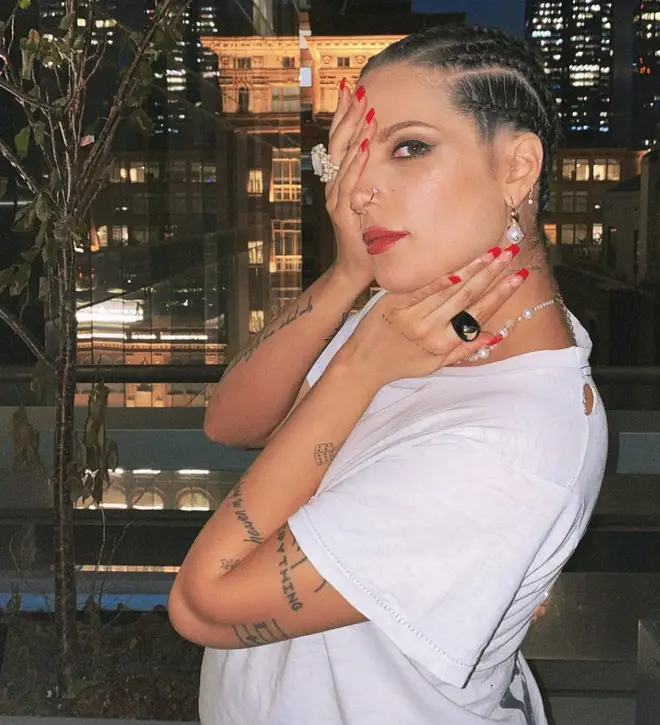On Air Now
The Capital Late Show with Sonny Jay 10pm - 1am
22 July 2021, 14:53

Halsey is taking a break from doing press after they felt uncomfortable with how their pronouns were dealt with in an interview.
Halsey has announced that they won't be doing press in the near future after they feel “deliberately disrespected” by a recent interview.
On Wednesday, the 26-year-old star, whose preferred pronouns are she/they, took to Twitter to share her discomfort with her last experience with the press.
What Does Ender Ridley Aydin Mean? The Story Behind Halsey’s Baby’s Name
The 'You Should Be Sad' singer recently welcomed her first child with partner Alev Aydin and had spoken about their secretive relationship in the recent interview.
However, Halsey expressed concern over their pronouns not being respected...

Watch Halsey’s If I Can’t Have Love I Want Power trailer

In a series of tweets on Wednesday, the star expressed their dismay at feeling misgendered by the interview.
She wrote: "First your writer made a focal point in my cover story my pronouns and you guys deliberately disrespected them by not using them in the article."
The singer continued: "Then your admin b***ardised a quote where I discuss the privilege of being the white child of a black parent + Intentionally used a portion that was the antithesis of the point I was trying to make."
The tweets have since been deleted.

The 'You Should Be Sad' singer announced in March that both pronouns 'she/they' feels "most authentic to me".
She updated her Instagram bio to reflect her preferred pronouns and put out a statement: "For those asking RE: my updated Instagram bio, I am happy with either pronouns.
"If you know me at all you know what it means to me to express this outwardly."
Using an individual's preferred pronouns and respecting the way they wish to be identifed is very important.
There is a wide variety of pronouns that vary from the more commonly known he/him, she/her and they/them.
A set of pronouns such as she/they are for gender-nonconforming individuals who are comfortable with being identified in both a non-binary context as well as a gendered one.
The two pronouns may be used interchangeably, or they may have a preferred one – the key thing to remember is the importance of communication, if you're not sure how to refer to someone, ask!
> Here Are All The Ways You Can Listen To Capital